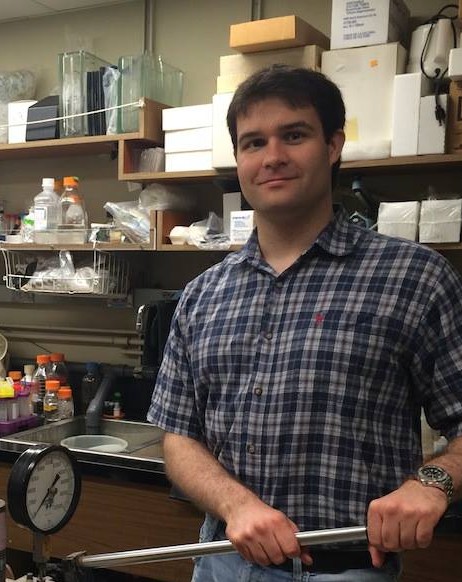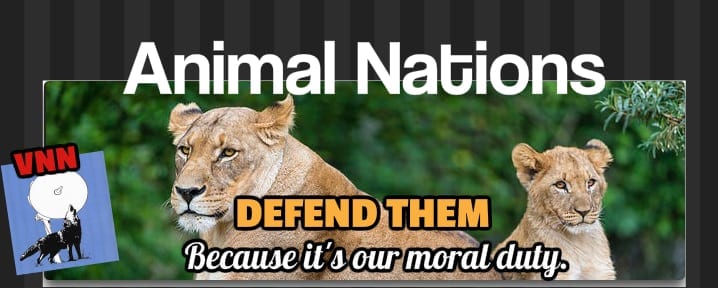ANIMAL NATIONS-GROUND GAINED, GROUND LOST, THIS IMMENSE STRUGGLE CONTINUES

By WOLF GORDON CLIFTON, ANIMAL PEOPLE
This editorial and organisation are endorsed by The Greanville Post
s winter sets in across the Northern Hemisphere, it’s easy to let a sombre perspective about the animals’ cause take hold. Here in the Pacific Northwest, the daylight steadily dwindles to just six hours per day of dim grey, the Sun often cloistered from direct view behind thick sheets of rain clouds. Seemingly swallowed up by darkness, one's thoughts more naturally turn toward disappointment than hope. But for activists dedicated to creating a brighter future for animals, it’s always important to cultivate a sense of optimism. I am writing to share my thoughts as to the promising future of animal protection, in the hope that they will help lift your spirits as well.
Sir Paul McCartney is famous for his assertion that, “If slaughterhouses had glass walls, everyone would be vegetarian.” Kim Bartlett, the founder and president of ANIMAL PEOPLE and my mother, began her career in animal advocacy with much the same conviction. If people only knew how animals are treated, she believed, that would motivate them to give up meat and fur and pass laws to abolish cruelty wherever it existed. Yet while animal rights advocacy has seen many victories in the forty-six years since Kim first became involved, the overall situation for animals remains unacceptable.
It turns out the glass walls metaphor is inadequate for understanding the complexities involved in creating awareness that leads to individual and social change. Not only is it necessary to install the glass walls where solid walls exist, you have to make people look at what's going on when they would rather look away. In societies where the sight of animals being killed is commonplace, people are already aware, but their minds employ various coping mechanisms, including “denial.” It is safe to say, though, that for First-Worlders, the distressing sight of animals being slaughtered is remote enough that when we do glimpse the animals suffering, we are disturbed enough to believe it should be stopped.
Even though the horrors animals experience in factory farms and slaughterhouses are now widely known by the public, the percentage of vegetarians within the United States has not grown significantly in decades, and worldwide meat consumption continues to increase. Despite the fabulous success of anti-fur campaigns during the 1980s, fur has made a fashion comeback in the years of the new millenium. Although the number of people who actually hunt is at an all-time low, the U.S. hunting lobby is more influential than ever, with the Department of the Interior recently creating an “International Wildlife Conservation Council” (sic) for the specific purpose of promoting trophy hunting abroad.
[dropcap]W[/dropcap]hat are we to make of this seeming discrepancy between public knowledge of animal suffering and inaction to prevent it? And more importantly, what can we do to resolve it? The Chinese philosopher Wang Yangming (1472-1529 C.E.) offers some heartening insights. Yangming was sympathetic to animal suffering, defining virtue as feeling “unable to bear” the pain or fear of animals about to be slaughtered, and describing how, by learning to love all beings – humans, animals, and plants alike – he discovered his own humanity.
"It turns out the glass walls metaphor is inadequate for understanding the complexities involved in creating awareness that leads to individual and social change. Not only is it necessary to install the glass walls where solid walls exist, you have to make people look at what's going on when they would rather look away..."
More pertinent to the problem at hand, Yangming taught the unity of knowledge and action. To know something in one’s heart is to act in accord with that knowledge, just as to see a beautiful color is to love it, and to smell a bad odor is to hate it: “True knowledge and action… are ‘like loving beautiful colors and hating bad odors.’…As soon as one sees a beautiful color, they have already loved it. It is not that one sees it first and then makes up their mind to love it.…As soon as one smells a bad odor, they have already hated it. It is not that one smells it first and then makes up their mind to hate it.”
When it came to matters of right and wrong, Yangming also said, “Those who are supposed to know but do not act simply do not yet know.” Confronted every day with willful ignorance and persistent hypocrisy in humans’ behavior toward other creatures, it may be tempting for animal activists to dismiss this teaching. Yet evidence suggests he may be right. Marketers have long followed the Rule of Seven – the adage that potential customers must be exposed to an advertisement seven times before they consciously think about buying a product or service. This is of course not universally true, and empirical tests have come up with optimal repetitions both lower and higher than seven. Yet the core principle of the Rule of Seven is scientifically sound: having merely been exposed to something is not the same as knowing, let alone acting, upon it, and it can take many reiterations of an idea before it fully seeps into one’s consciousness.
Change for animals on a societal scale has taken much longer to accomplish than any of us would have hoped, but change is well underway. Knowledge and action are finally coming together.
In October, I attended Compassion in World Farming’s "Livestock and Extinction" conference in London. The primary purpose of the conference was to draw attention to the impact of livestock farming on the environment, and especially its role in driving climate change. According to the United Nations, emissions from farm animals constitute nearly 15% of greenhouse gas production. Factoring in related emissions from sources like land clearance and the machinery used to raise, transport, and slaughter farm animals, the Worldwatch Institute traces more than half of all greenhouse gas pollution back to animal agriculture.
Unfortunately, persuading environmentalists – not to mention politicians and the general public – to acknowledge the connection between livestock and climate change has been a prolonged battle against an ominously ticking clock (not to mention proliferating factory farms in the developing world). It was too inconvenient a truth to warrant even a passing mention in Al Gore’s seminal 2006 documentary. Since that time, the rising temperature of the Earth’s oceans has already depleted California fur seals’ food sources, causing mass starvation; devastated coral reef ecosystems worldwide; and driven its first mammal species, the island-dwelling Bramble Cay melomys (a rodent), to extinction beneath the rising waves.
Yet while the effects of climate change become stronger every day, so too does mainstream knowledge that livestock is a leading cause, and with it, meaningful action to mitigate the coming crisis. The Livestock and Extinction conference brought together activists, scientists, industry leaders, and politicians from across the world in common recognition of the facts, and received heavy media attention, including not just one but two supportive articles in The Guardian.
Household name environmental groups, including the World Wildlife Fund and Sierra Club, have in just a few short years gone from completely ignoring animal agriculture to actively promoting vegetarian, vegan, and/or meat-reducing lifestyles. And most promising of all, governments are beginning to listen. From New York City declaring Meatless Mondays in public schools, to China announcing plans to cut its meat consumption by half by 2030, political leaders are turning against the livestock industry in defense of people, animals, and the planet.
Heartened by such examples of knowledge spurring action worldwide, we at ANIMAL PEOPLE will, with your help, continue to do everything we can to raise awareness of animal protection issues among activists and the general public.
Tackling another vitally important, yet still under-acknowledged issue concerning agriculture, animals, and the environment, ANIMAL PEOPLE recently launched an international social media campaign titled “Palm Oil is Not Cruelty Free.” Forests in Southeast Asia, Africa, and Latin America are being rapidly destroyed to clear land for the production of palm oil, a cheap vegetable oil commonly used in food, cleaners, biofuel, and various other products. Countless wild animals have lost their lives as a result, including orangutans burned to death in forest-clearing fires and elephants poisoned for setting foot in plantations that used to be their territory. By alerting animal advocates to the fact that palm oil, while technically vegan, causes massive suffering to wild animals in its production, we hope not only to inspire personal avoidance of palm oil products, but to help catalyze activism against palm oil deforestation.
Come January, we have plans to re-launch our video news series, ANIMAL PEOPLE World News, whose initial pilot season ran in early 2017. The new and improved series will consist of biweekly episodes approximately 10 minutes each, succinctly reporting current events that pertain to animal protection. To receive updates by e-mail whenever a new episode is released online, please contact me at wolf@animalpeopleforum.org and I will add you to our electronic mailing list.
With hope for a bright future,
—Wolf Gordon Clifton, executive director
 Wolf Gordon Clifton serves as Executive Director for Animal People, and editor in chief of its main organ, Animal People Forum.
Wolf Gordon Clifton serves as Executive Director for Animal People, and editor in chief of its main organ, Animal People Forum. 
![]()
[premium_newsticker id=”154171″]


